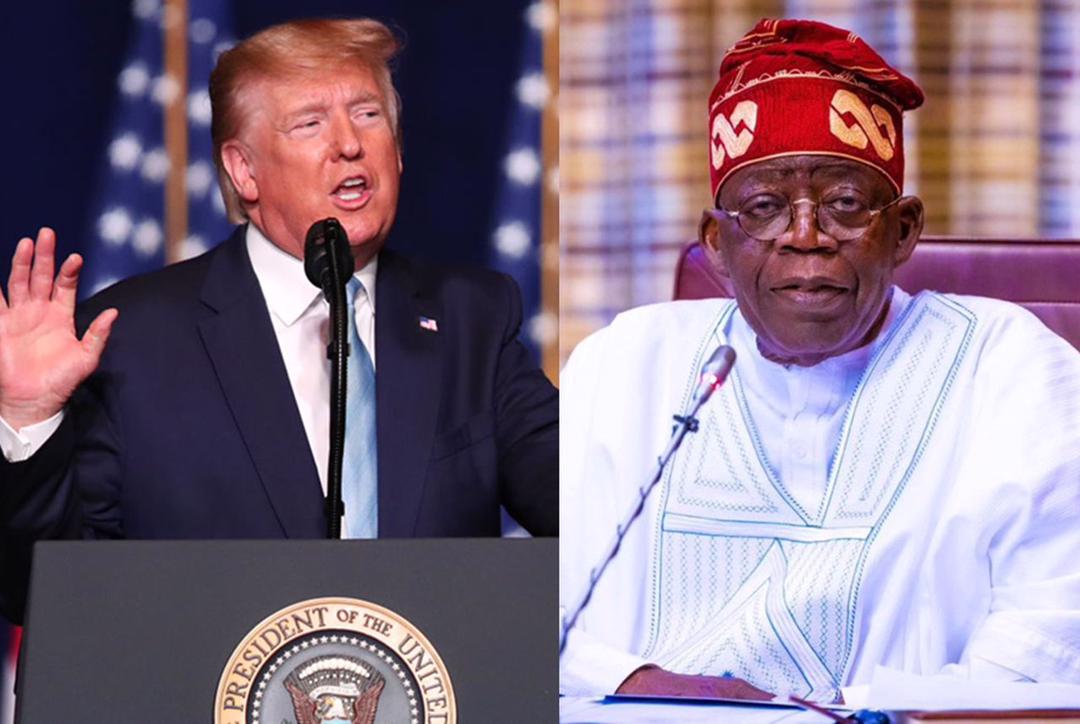
“Guns-a-Blazing”: Trump’s Stark Warning to Nigeria Sends Shockwaves Through Abuja and Washington

In a video posted on his social platforms this weekend, U.S. President Donald Trump issued a blistering warning to Nigeria that threatened to upend decades of diplomatic and security cooperation between the two countries. “If the Nigerian government continues to allow the killing of Christians, the USA will immediately stop all aid and assistance to Nigeria,” the president said, adding that he had “instructed our Department of War to prepare for possible action.” He warned that any U.S. military intervention “would be fast, vicious, and sweet,” and said American forces might go into Nigeria “guns-a-blazing” to “completely wipe out the Islamic terrorists” he blamed for atrocities.
The post — which followed Mr. Trump’s decision to place Nigeria back on a U.S. State Department “Countries of Particular Concern” list for alleged religious persecution — immediately provoked alarm among Nigerian officials and international analysts who warned that the rhetoric risked inflaming an already complex security crisis rather than helping to solve it. Nigeria, Africa’s most populous country and a long-standing partner on counterterrorism, faces multiple armed threats across its territory, from Boko Haram and IS-affiliated groups in the northeast to banditry and communal violence in the northwest and the Middle Belt. Analysts say those threats cut across religion and region, complicating any simple “Christian vs Muslim” narrative.
Abuja pushed back swiftly. President Bola Ahmed Tinubu’s office issued a statement stressing that Nigeria’s constitutional commitment to religious freedom and tolerance remained intact and that the government was taking steps to address insecurity affecting citizens “across faiths and regions.” Nigerian officials privately expressed shock at the public tone of the threat, while diplomats in Washington voiced concern that the president’s comments could complicate ongoing U.S. security cooperation and humanitarian assistance to a country where millions depend on international aid.
The White House did not immediately provide a detailed legal or operational rationale for the threat, and senior Pentagon officials referred questions back to the White House after Mr. Trump said he had tasked the newly rebranded “Department of War” to prepare contingency plans. U.S. defence spokespeople have been careful to avoid confirming any imminent deployment, but Reuters reported that small planning steps — including consultations with U.S. Africa Command — were under way. The lack of a clear, narrow target and the president’s incendiary language prompted calls from human rights groups and regional experts for a calmer, evidence-based approach.
Human rights researchers and many Nigeria watchers pointed out that the situation on the ground is far more nuanced than the stark picture painted in the president’s message. Several independent analyses have shown that militant violence in Nigeria has not been a one-sided campaign directed exclusively at Christians, and that extremist groups have often targeted Muslims as well. Experts cautioned that language framing the conflict as an existential threat to Christians risks inflaming sectarian tensions and could be exploited by local actors to justify retaliatory violence.
The president’s statement follows intense pressure from some conservative U.S. lawmakers and activist groups who have pushed the narrative of a “Christian genocide” in Nigeria, a claim critics say is exaggerated and politically motivated. The move to place Nigeria on the religious-freedom watch list had already signalled a tougher U.S. posture; the new threat of military action has escalated the situation and raised questions about how far the administration might go to influence Lagos’s internal security policies. Diplomats and security analysts warned that punitive action such as cutting off aid — or worse, unilateral military strikes — would have far-reaching humanitarian, economic and strategic consequences for Nigerians and for regional stability.
African and international partners reacted with unease. Several governments and multilateral institutions reiterated the need for coordinated responses that support Nigeria’s authorities and civil society rather than unilateral intervention. They stressed that effective counterinsurgency requires local intelligence, long-term capacity building and attention to root causes such as poverty, governance deficits and competition over land and resources — not headline-grabbing threats that could fracture relationships. Regional leaders in West Africa, who have faced their own battles with extremist groups, expressed particular concern about the precedent a unilateral U.S. military move would set.
Inside the United States the president’s message opened a fresh front in domestic politics. Supporters hailed the hard line as necessary to defend religious minorities abroad; critics described it as reckless brinkmanship that conflated complex local conflicts with simplistic, sectarian rhetoric. Legal scholars also flagged the unclear legal basis for cross-border military action against a sovereign state that is itself fighting armed groups, and questioned whether Congress or international bodies would be consulted before any kinetic operation.
For Nigerians on the ground, the moment is jarring. Communities already traumatized by years of violence now face the prospect of becoming pawns in a distant geopolitical dispute. Humanitarian organizations warned that the mere talk of halting assistance could imperil food, health and protection programs that reach millions, and that destabilising Nigeria further would reverberate across the Sahel and West Africa, where displacement, cross-border insurgency and illicit armed networks are already straining fragile states.
As the diplomatic shockwaves spread, calls mounted for de-escalation and dialogue. Experts urged Washington and Abuja to re-engage through established diplomatic channels, bolster targeted cooperation to protect civilians regardless of faith, and support community-level reconciliation and economic resilience programs. The episode underscores how quickly social media proclamations and political theatre can intersect with real-world security dilemmas — with potentially dangerous consequences if cooler heads do not prevail.
The coming days will test whether the rhetoric yields to sober statecraft. If the United States follows through on any aspect of the president’s threat, it could mark a dramatic turning point in U.S. policy toward Africa and raise difficult legal, moral and strategic questions. For now, Abuja and Washington remain locked in a tense standoff — one that many fear could do more harm than good to the very people both governments say they want to protect.


